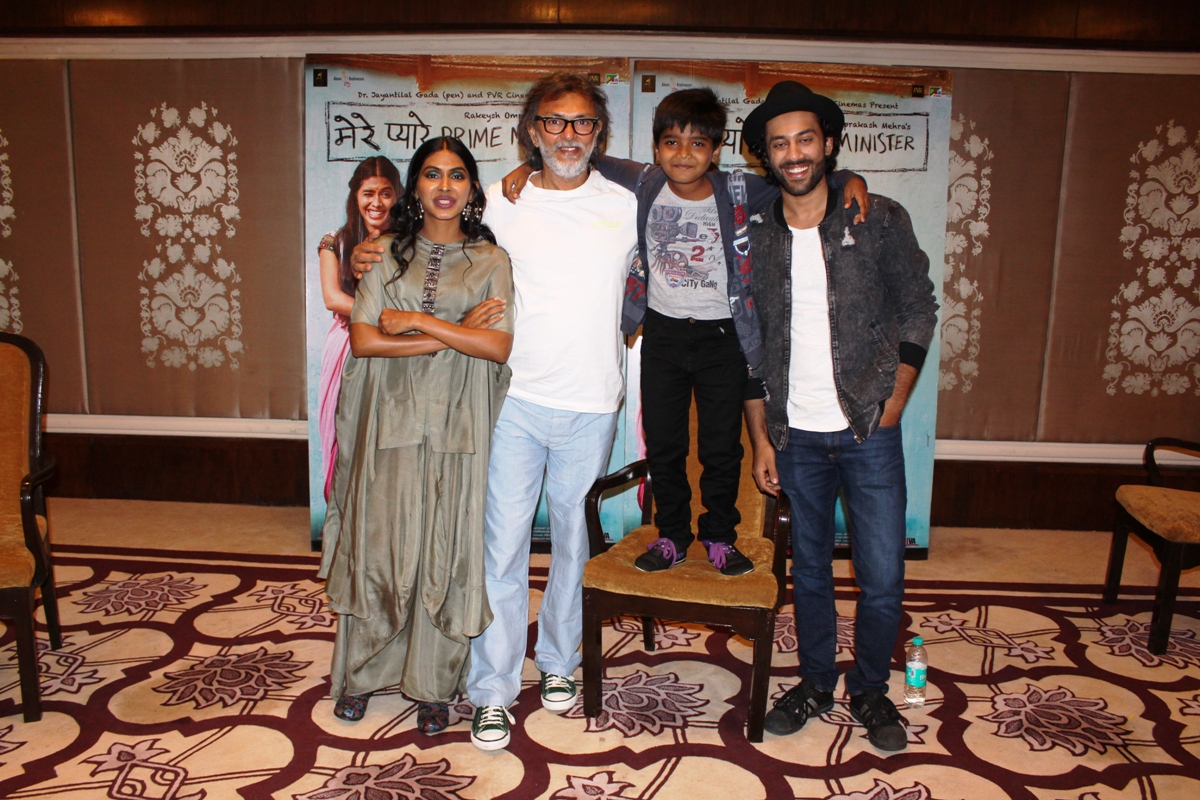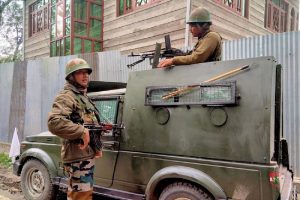Rakeysh Omprakash Mehra, the director of National Award winning film Bhaag Milkha Bhaag, is ready with Mere Pyare Prime Minister. Mehra made his directorial debut with the 2001 film Aks, but it was his 2006 National Award winning film Rang De Basanti which propelled him to critical acclaim. Mere Pyare Prime Minister is Mehra’s sixth film as a director.
In an interview to thestatesman.com, Mehra sits down to reveal a bit about his film and the dedication of its principal actor, the 8-year-old Om Kanojia. He also speaks about how people can bring in a change in society, the patriotism of our times, the flaw in our education system and why Rang De Basanti is “unfortunately” relevant even today.
Advertisement
For our readers, could you please tell us something about Mere Pyare Prime Minister?
It is a film about the haves and the have-nots (in particular). It’s a film about the low middle-class, the poor. It’s a film about inspiration and, through the journey of an 8-year-old, tells us to take on life. MPPM tells us that whatever the ups and downs are in life, you can take them head on. You can do something about the problems and be the agent of change yourself rather than pointing fingers.
How did you get the idea of making this film?
There is no one such moment that the idea came and it became a Eureka moment. I remember shooting for Bhaag Milkha Bhaag in Mumbai’s Film City. It was late at night and I was driving back. We had to pass through a slum colony. The car hit the highway and 8-10 women got up – pushing their sarees down, pulling their salwars up. I looked away in embarrassment. So that’s the opening scene of the film. Then I came across the UNICEF figures which revealed that 50 per cent of the rapes in the country happen when women are out to defecate. I had to now tell a story woven around this.
It’s a beautiful story of an 8-year-old boy, Kanhaiya, lovingly called Kanu, and his single mother, Sargam, who wants to raise him as a good citizen. Then she becomes a victim of rape, which kind of completely turns the story in a different direction. How she deals with her situation and, most importantly, how her son wants to change things even if he has to go to the PM of the country is what the story is about. He writes a letter to the PM and carries it from Mumbai to Delhi in a train with a bunch of his friends.
How much do you think the government listens to the people?
I think it is for us to change things. We cannot point fingers at the government and blame it for everything. It is our lives and if we want to make this country perfect, we have to make it perfect. It’s a democracy, so choose the right candidate. We should vote for the candidate and not the party, always. You’ll know the candidate in your area. You can meet the candidate and talk to her or him. You can then understand and make your choice. Stop blaming. People don’t go out to vote in this country and they shout a lot.
Since we are talking about people and noises, there has been a lot of noise around some movies. Padmaavat, for example. People are quick to offence these days. We are talking about a change among people. As a filmmaker how do you see all of this?
You can’t control people and how they think but you can control how you think and what you make. Filmmakers also objectify women and feature item songs. We are all part of the society. That’s what you have to understand. It’s not just me and you. It is us.
The rapist in MPPM is not out there – it is the person you look in the mirror. I am the rapist; my brother is, my father is, my son is. It’s an attempt to change the mindset of the people. That’s how I think. Everybody thinks differently.
Rang De Basanti ignited patriotism in the youth of the country. That was 2006. Thirteen years down the line where do you see patriotism going now?
Why 13 years down the line? Patriotism is evergreen. So why barometer of 13 years?
Only keeping the year of the film in perspective and seeing things from that point of time.
When I made RDB I made it because I couldn’t do anything for the nation. It was almost semi-biographical, drawn from my college days. And MiGs were crashing even when I was in Air Force school. All of this made me very angry. I wanted to do something. But we didn’t do anything. We didn’t participate in the running of the country. In fact, we got jobs, became comfortable, got married, bought the first motorcycle, then a two-bedroom apartment, got multinational jobs; a lot of my friends went to America. We didn’t do anything for the country. What we saw in the film was the youth who did nothing and then they get inspired by the youth of the 1920s who gave their lives, and then the line blurs. So that gave us a sense of patriotism as such.
Now, I think country is about its people. I hear a lot of rhetoric and a lot of hatred. True patriotism lies in social, spiritual and economic upliftment of the people of India, not religious. I believe in creating wealth. I think you should create wealth but there should also be distribution of wealth. There should also be inclusiveness of people. Money can’t go into one pocket and should not because everyone is putting their hard work. Yes, there’s a brain that organises everything but that doesn’t give you the right to exploit anybody else. It only gives you the right to create the wealth collectively. So distribute collectively. Here you can keep a lion’s share and give 50 per cent. Just saying that I have given my taxes and done my duty is not enough.
A fighter jet, a bad defence deal and corrupt politician-businessman nexus were part of the story of RDB. Those very things are reality of political discourse today. The voices are up. How coincidental are these developments?
It was a reality in the discourse even then. I would say that RDB is unfortunately still relevant. Not fortunately, unfortunately. That’s what I will say.
Since your debut movie ‘Aks’, in 2001, what change do you see in Indian cinema today?
It is evolving. Audiences are still drawn to the theatres for escapism. It is because life on the street is really harsh. The moment that life on the street evolves, you will see cinema reflecting it and juxtaposing it in a different way. Cinema is born out of the society. It doesn’t fall from the sky. The people who live in this society write the story. We are still star-struck. But lately there has been a beautiful trend of content being the star.
As a director, what will you say about Om Kanojiya?
I think once you see the film, you’ll see he has done a very sensitive performance. He understands the subject of rape, of violation. I think all children understand. You start treating them like children – like adults think children know nothing, this is their biggest fault. We should not have conversations with them about things like rape, population control, condoms and so on. We should stand corrected. I struck a great friendship with Om. We had fun but we also did serious work. We never shied away from that. He is very hard-working, has very good focus and is unfazed by anything. He is a natural. He is the hero.
What do you think about the education system of the country?
I don’t think much about the education system. I think that’s bhed chaal (herd mentality). You are teaching everybody rather than giving the individual the choice of his aptitude. This education system is the hangover of the industrial revolution, where you are creating CAs, engineers and MBAs to run your factories. Time has changed. Life is changing fast with the advent of connectivity with what’s going on in the world. We need to reinvent a system that suits an individual. What is good for A might not be good for B, and here you are saying that what is good for one is good for 1 crore people. That’s not possible! You have to give a choice in syllabus, especially in the higher secondary level – it’s not up to primary level. The whole thing of getting percentage is becoming competitive. You can’t get into a college till you get 90 per cent. It’s a useless system. Education cannot be equal to job security or degree. Education is about wisdom, about making you a good human being who understands things. Not for ‘study this and get a job’.
Any plans of showing the movie to the PM?
No. I have not shown any of my films to the Prime Minister. That’s propaganda.
Well, some people have called Uri and The Accidental Prime Minister as propaganda films. What are your views?
I haven’t seen both of them so I can’t comment.
(This interview has been edited in parts for clarity)











